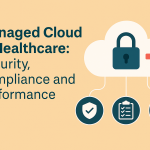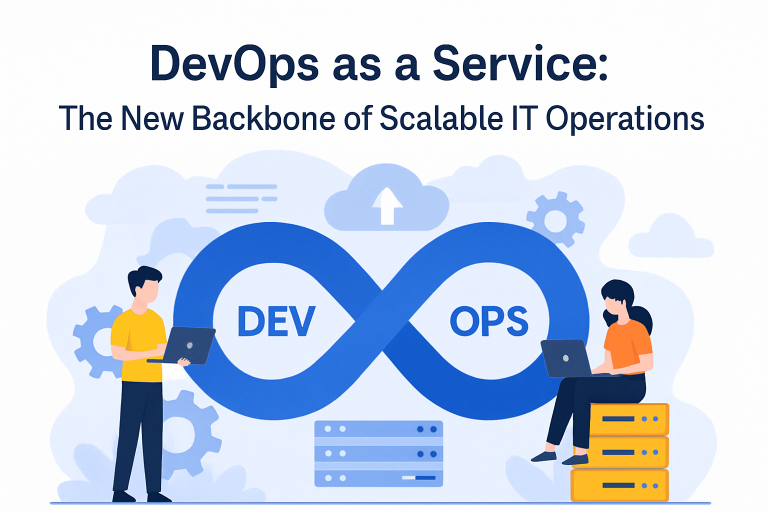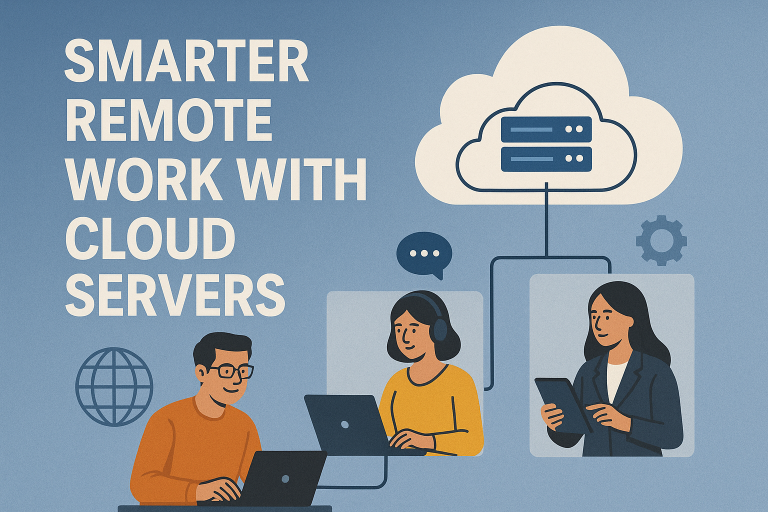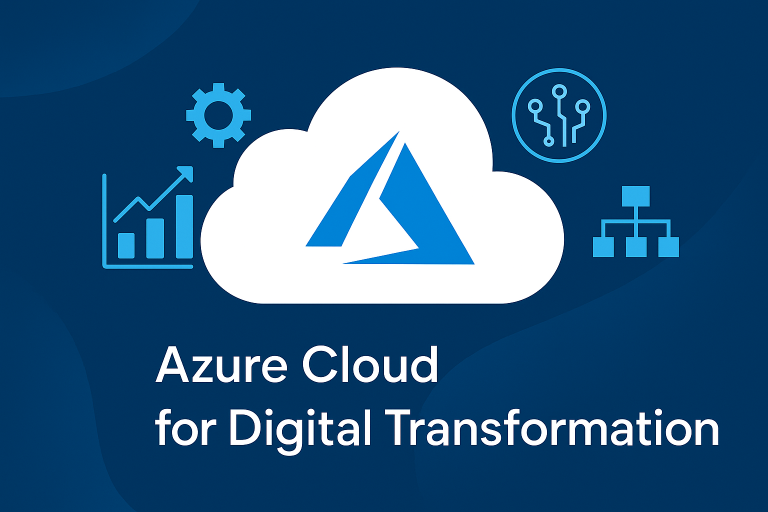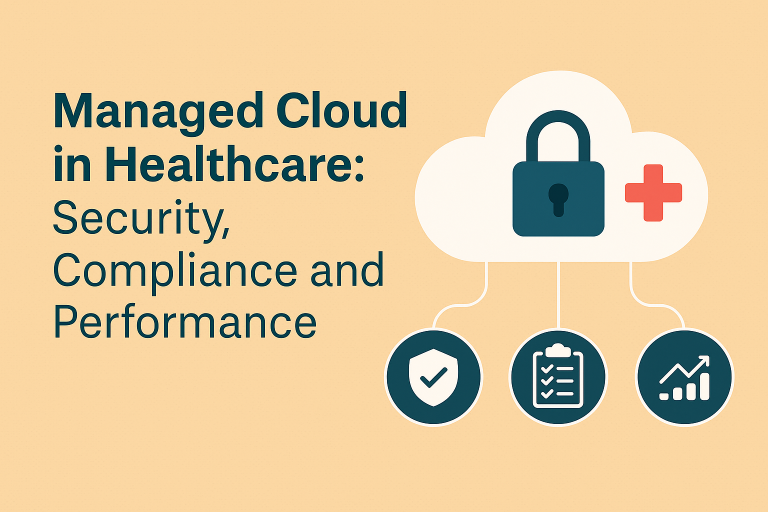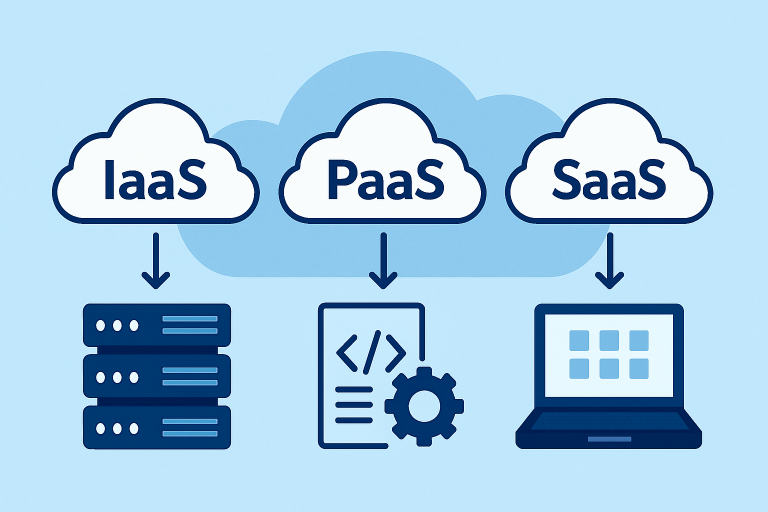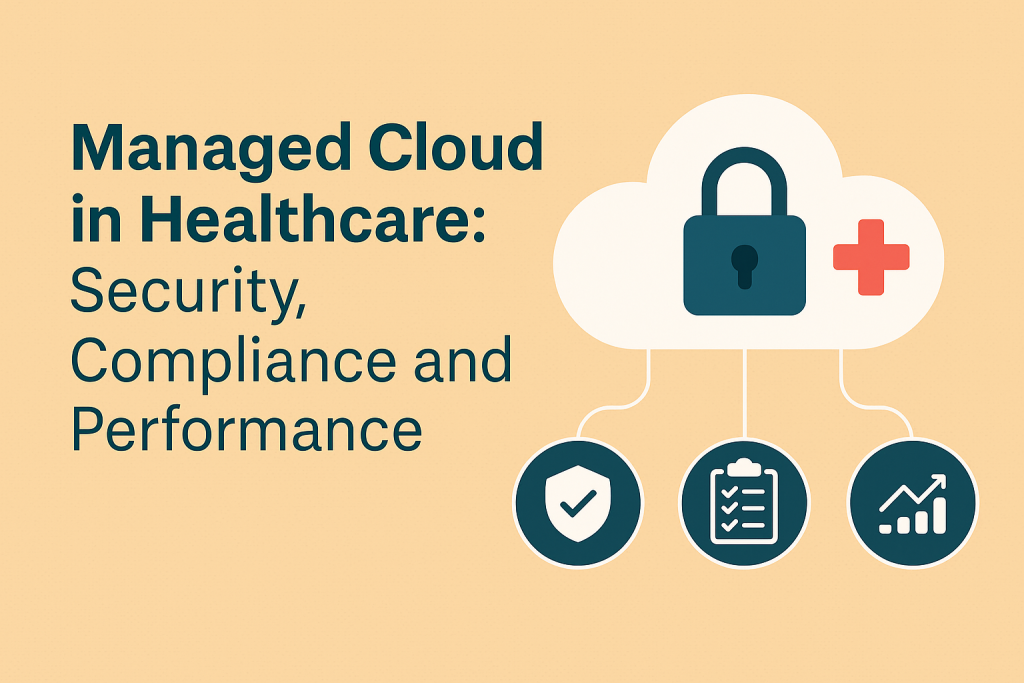
Healthcare is going digital and the cloud is leading the charge. Hospitals and clinics are using it to improve patient care, simplify operations, and access critical data in real time. But let’s be honest: healthcare isn’t like other industries. Between strict regulations, constant cyber threats, and the need for systems that never slow down, adopting new tech can feel overwhelming. That’s why more organizations are turning to managed cloud services. Managed cloud in healthcare is helping hospitals and clinics improve patient care, simplify operations, and access critical data in real time. Instead of struggling with complex infrastructure, they are getting secure, compliant, and high-performance solutions built specifically for healthcare. In this post, we’ll break down how the right cloud partner can help you protect patient data, stay on top of regulations, and keep everything running smoothly, so you can focus on what really matters: your patients.
The Growing Importance of Managed Cloud in Healthcare
From electronic health records (EHRs) to medical imaging and telemedicine systems, providers in the healthcare industry are continuously creating an avalanche of data. Maintaining security and compliance while juggling this data is no small challenge.
This is where managed cloud services find application:
- Reducing IT overhead lets healthcare companies assign infrastructure management to cloud experts.
- As data needs increase, cloud solutions make it simple to scale up.
- Improved care coordination results from clinicians securely accessing patient data from anywhere.
It is imperative that rules like HIPAA (Health Insurance Portability and Accountability Act) and GDPR (General Data Protection Regulation) enforce rigorous data security standards as cyber threats grow more common and laws like these are under attack.
Security: Protecting Sensitive Healthcare Data
A. Growing Risks to Healthcare Cybersecurity
The high value of patient data on the illicit market makes the healthcare industry a prime target for cyberattacks. Typical dangers consist of:
- Attacks using ransomware (such as stopping hospital operations until a ransom is paid).
- Data breaches that result in patient records being made public.
- Phishing scams: deceiving staff members into divulging their login credentials.
To reduce these risks, a managed cloud provider uses cutting-edge security measures.
B. Key Security Features of Managed Cloud
Security is a top priority in healthcare and managed cloud services are built to protect patient data at every level:
- Encrypted Data: Information is safely encrypted, whether stored or in transit, including secure doctor-patient communication.
- Multi-Factor Authentication: Adds extra protection beyond passwords to block unauthorized access.
- Real-Time Threat Monitoring: Detects and stops suspicious activity before it becomes a problem.
- Regular Security Checks: Audits and tests help find and fix vulnerabilities early.
- Zero Trust Approach: Every user and device must verify access—no shortcuts.
These smart layers of protection help healthcare providers stay secure, compliant, and focused on delivering care.
Compliance: Meeting Healthcare Regulations
Compliance in the healthcare sector goes beyond documentation to include safeguarding your patients and your company. Falling short does have actual hazards.
- Penalties pertaining to finances: One HIPAA infraction could cost up to $1.5 million every occurrence.
- Legal trouble: Data breaches sometimes result in lawsuits and protracted investigations.
- Patients expect their information to be safe; once trust is betrayed, it is difficult to rebuild.
Key Regulations You Need to Know
Healthcare runs on trust—and that means following strict data rules:
- HIPAA (U.S.): Protects patient data with encryption, access controls, and logging.
- GDPR (EU): Gives patients control over their data, including consent and deletion rights.
- HITECH Act: Adds teeth to HIPAA with breach notifications and higher penalties.
- PCI DSS: Secures payment info during billing and transactions.
How Managed Cloud Simplifies Compliance
Staying compliant should not slow you down. A managed cloud provider takes care of the tough stuff, so you don’t have to:
- Built-in compliance: HIPAA-ready setups with BAAs already signed.
- Always-on monitoring: Spots issues before they turn into risks.
- Audit-ready logs: Track who did what, when—no scrambling during audits.
- Smart data control: Keeps sensitive info in the right place, avoiding cross-border headaches.
With the right partner, compliance becomes part of the process—not a burden. You stay focused on care, not checklists.
Performance: When Every Second Counts in Healthcare
In healthcare, technology can’t afford to lag – literally. Consider these real-world scenarios:
- A telemedicine call freezing mid-consultation could mean missing critical symptoms
- Delays in loading high-res MRI scans might postpone life-saving diagnoses
- AI diagnostic tools crawling at slow speeds waste precious clinician time
These aren’t just IT issues, they directly impact patient care and outcomes.
How the Right Cloud Solution Delivers
Modern managed cloud services act like a well-trained medical team for your infrastructure:
- Smart resource allocation: Automatically ramps up capacity during flu season or emergencies, like extra staff during peak hours
- Always-on reliability: Built-in backups and fail-safes keep systems running even if one component fails
- Local processing power: Edge computing works like a neighborhood clinic – handling data closer to where it’s needed for faster response
- Disaster preparedness: Geographic redundancy ensures patient data stays safe no matter what happens
Case in Point: When Regional Medical Center moved their telehealth platform to managed cloud:
- Handled 5,000+ daily virtual visits without hiccups
- Cut video wait times nearly in half
- Gave doctors instant access to records during consultation.
Real-World Use Cases in Healthcare
Telehealth & Remote Monitoring Made Smoother
Today’s cloud platforms make virtual care easier than ever. From wearable device data to secure video calls, everything runs in real time—no lags, no interruptions. With cloud monitoring and management services keeping systems secure and always-on, doctors can focus on care, not tech hiccups.
Smarter Insights with AI & Analytics
Predicting illness or planning treatments with AI takes serious computing power. Managed cloud solutions make it easy to run and scale these tools—while keeping patient data safe and compliant.
Modernizing Electronic Health Records (EHRs)
With cloud migration services, moving EHRs to the cloud brings better mobility, faster searches, and smoother integrations across systems. And with a managed provider handling infrastructure and updates, healthcare teams get the benefits without the backend burden.
Finding Your Ideal Cloud Partner
Choosing a cloud provider is not just about technology. It is about finding someone who truly understands healthcare’s unique rhythm. Here’s what to prioritize:
- Compliance expertise: They should know HIPAA and GDPR like doctors know anatomy
- Healthcare-grade security: Look for military-level protection that doesn’t slow down care
- Performance guarantees: Ensure they can handle your busiest days without breaking a sweat
- Specialized support: Your IT team should get answers from people who speak “healthcare,” not just “tech”
The best partners do more than just host your systems. They offer cloud management services that act as an extension of your team, anticipating needs before they become emergencies.
Leading Cloud Providers for Healthcare
When it comes to choosing your technology partner, healthcare organizations have several strong options:
- AWS, Microsoft Azure, and Google Cloud: The “big three” offer robust platforms with dedicated healthcare solutions
- Specialized healthcare cloud vendors: Niche providers who eat, sleep, and breathe medical technology
Each brings unique strengths to the table – the key is finding who aligns best with your specific needs and workflows.
Conclusion
The stethoscope revolutionized how doctors examine patients. EHRs transformed how we track care. Now, managed cloud services are quietly becoming healthcare’s next indispensable tool not because they are flashy, but because they solve real problems.
This is not about “moving to the cloud” for technology’s sake. It’s about:
- Protecting what matters most (your patients’ data and trust)
- Empowering your team (with tools that work when they need them)
- Future-proofing your practice (for innovations we can’t even imagine yet)
The most forward-thinking healthcare leaders are not asking if they should adopt cloud technology. They’re determining how to implement it most effectively for their unique needs. Because in an era where every second and every data point counts, your technology should not be a limitation. It should be your greatest ally.
